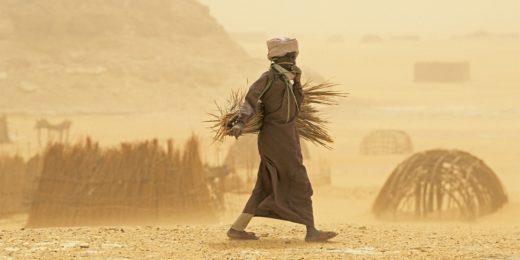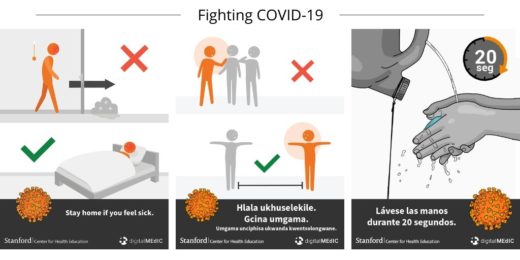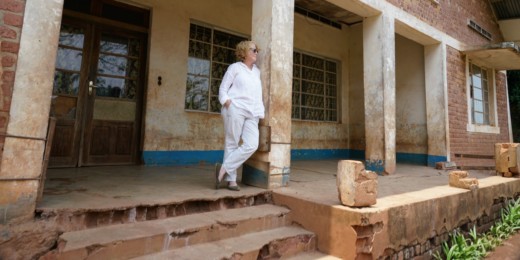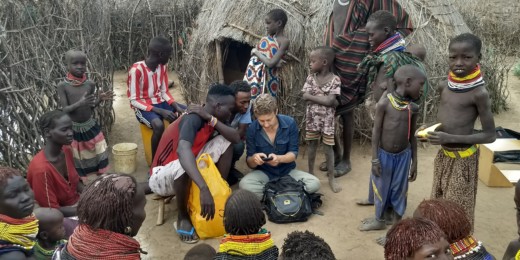Many early clinical studies of COVID-19 fail to meet quality standards, raising concerns that the data could be of little meaningful use, research finds.
Category: Global Health
Why air pollution is linked to severe cases of COVID-19
A Stanford researcher discusses how toxic pollutants can make people more susceptible to COVID-19 and why people of color are particularly vulnerable.
Dust pollution linked to infant mortality in Sub-Saharan Africa
Dust pollution in the air contributes to infant mortality in Sub-Saharan Africa, a Stanford-led study found. Watering the desert may lessen the harm.
Keeping under-resourced communities informed about COVID-19
The Stanford Center for Health Education is creating digital COVID-19 informational materials for under-resourced communities around the world.
Women leaders shine during COVID-19 pandemic
A webinar examined attributes and qualities that led to the successes of women leaders responding to the COVID-19 pandemic.
Palliative care training project helps improve, expand services in India
A Stanford-led palliative-care training program is helping critically and chronically ill patients in India get services they need.
Gender discrimination is linked to depression in child-bearing women, Stanford-led study finds
A Stanford-led study has found that experiencing gender discrimination was associated with depressive symptoms in women who had young children.
COVID-19 from a global health perspective: A podcast
Michele Barry, director of the Stanford Center for Innovation in Global Health, discusses global pandemics and the role human behavior plays in them.
Have thoughts about coronavirus? Share them in a large Stanford survey
The Stanford Coronavirus Study is investigating how the COVID-19 outbreak is affecting people's lives. It is open to new participants.
Former Doctors Without Borders leader reflects on saving lives in war zone
Joanne Liu, a former Doctors Without Borders international president, reflects on the challenges of saving lives while under fire in war zones.
Stanford ramps up coronavirus testing to help other hospitals
The Stanford Clinical Virology Laboratory is ramping up capacity for its coronavirus diagnostic test, which can deliver results in 24 hours.
Helping neighbors: Addressing diabetes as a community
Taking a community-based approach to diabetes could help curb high rates of the disease in less wealthy nations, new research suggests.
A personal reflection: Why Congo has the largest measles outbreak in the world
Measles is ravaging the Democratic Republic of Congo. Beth Duff-Brown, who has traveled there for several decades, reflects on the epidemic.
Speaking the language, learning the medical culture
Working on a global health project in Bangladesh, Stanford medical student Tasnim Ahmed learned that a familiar place can have an unfamiliar medical culture.
Medical student surveys health of nomadic African group, thanks to goats
Many health surveys omit nomadic African populations, leaving them undercounted for aid and resources. That wasn't OK with medical student Hannah Wild.
Marking World AIDS Day: A Q&A
Stanford Medicine researchers discuss prevention efforts and the importance of addressing the long-term health of people living with HIV.

















